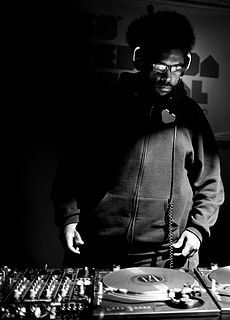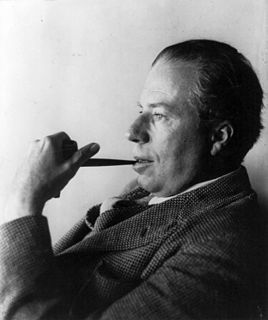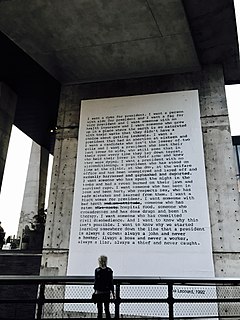A Quote by Kenneth Clark
Ruskin's much-derided moral theory of art was part of an attempt to show that this human activity, which we value so highly, engaged the whole of human personality. His insistence on the sanctity of nature was part of an attempt to develop Goethe's intuition that form cannot be put together in the mind by an additive process, but is to be deduced from the laws of growth in living organisms, and their resistance to the elements.
Related Quotes
The basic thesis of gestalt theory might be formulated thus: there are contexts in which what is happening in the whole cannot be deduced from the characteristics of the separate pieces, but conversely; what happens to a part of the whole is, in clearcut cases, determined by the laws of the inner structure of its whole.
Religion is part of the human make-up. It's also part of our cultural and intellectual history. Religion was our first attempt at literature, the texts, our first attempt at cosmology, making sense of where we are in the universe, our first attempt at health care, believing in faith healing, our first attempt at philosophy.
Many people think that when we practice agriculture, nature is helping us in our efforts to grow food. This is an exclusively human-centered viewpoint... we should instead, realize that we are receiving that which nature decides to give us. A farmer does not grow something in the sense that he or she creates it. That human is only a small part of the whole process by which nature expresses its being. The farmer has very little influence over that process... other than being there and doing his or her small part.
For the fact is that organisms are creative and make their environments in such a way as to become virtually part of it themselves. But at the same time environments (nature and other people) are active in the making of organisms. In many respects each one of these elements, organism and environment, form part of one another.
Is the world ruled by strict laws or not? This question I regard as metaphysical. The laws we find are always hypotheses; which means that they may always be superseded, and that they may possibly be deduced from probability estimates. Yet denying causality would be the same as attempting to persuade the theorist to give up his search; and that such an attempt cannot be backed by anything like a proof.
Resistance here doesn't mean revolution. It doesn't mean storming the barricades. Resistance means using art for the things that it does best, which is to create human portraits and communicate ideas and forge a climate where people of different races or classes are known to you because they make themselves known. In the simplest terms, art humanizes. It opens the circuit of empathy. And once that process happens, it's that much harder to think of people as part of a policy or a statistic. Art reverses the alienation that can creep into society.
Mistaken
regard for what are believed to be divine laws and a sentimental belief in the sanctity of human
life tend to prevent both the elimination of defective infants and the sterilization of such adults as
are themselves of no value to the community. The laws of nature require the obliteration of the
unfit and human life is valuable only when it is of use to the community or race.
I believe in the supreme excellence of righteousness; I believe that the law of righteousness will triumph in the universe over all evil; I believe that in the attempt to fulfil the law of righteousness, however imperfect it must remain, are to be found the inspiration, the consolation, and the sanctification of human existence.
We live in order to finish an, as yet, unfinished universe, unfinished so far as the human, that is, the highest part of it, is concerned. We live in order to develop the superior qualities of man which are, as yet, for the most part latent.
The study of letters is the study of the operation of human force, of human freedom and activity; the study of nature is the study of the operation of non-human forces, of human limitation and passivity. The contemplation of human force and activity tends naturally to heighten our own force and activity; the contemplation of human limits and passivity tends rather to check it. Therefore the men who have had the humanistic training have played, and yet play, so prominent a part in human affairs, in spite of their prodigious ignorance of the universe.
This thou must always bear in mind, what is the nature of the whole,
and what is my nature, and how this is related to that, and what
kind of a part it is of what kind of a whole; and that there is no one
who hinders thee from always doing and saying the things which are
according to the nature of which thou art a part.
When physics, chemistry, biology, medicine, contribute to the detection of concrete human woes and to the development of plans for remedying them and relieving the human estate, they become moral; they become part of the apparatus of moral inquiry or science? When the consciousness of science is fully impregnated with the consciousness of human value, the greatest dualism which now weighs humanity down, the split between the material, the mechanical and the scientific and the moral and ideal will be destroyed.
In war the chief incalculable is the human will, which manifests itself in resistance, which in turn lies in the province of tactics. Strategy has not to overcome resistance, except from nature. Its purpose is to diminish the possibility of resistance, and it seeks to fulfil this purpose by exploiting the elements of movement and surprise.



































